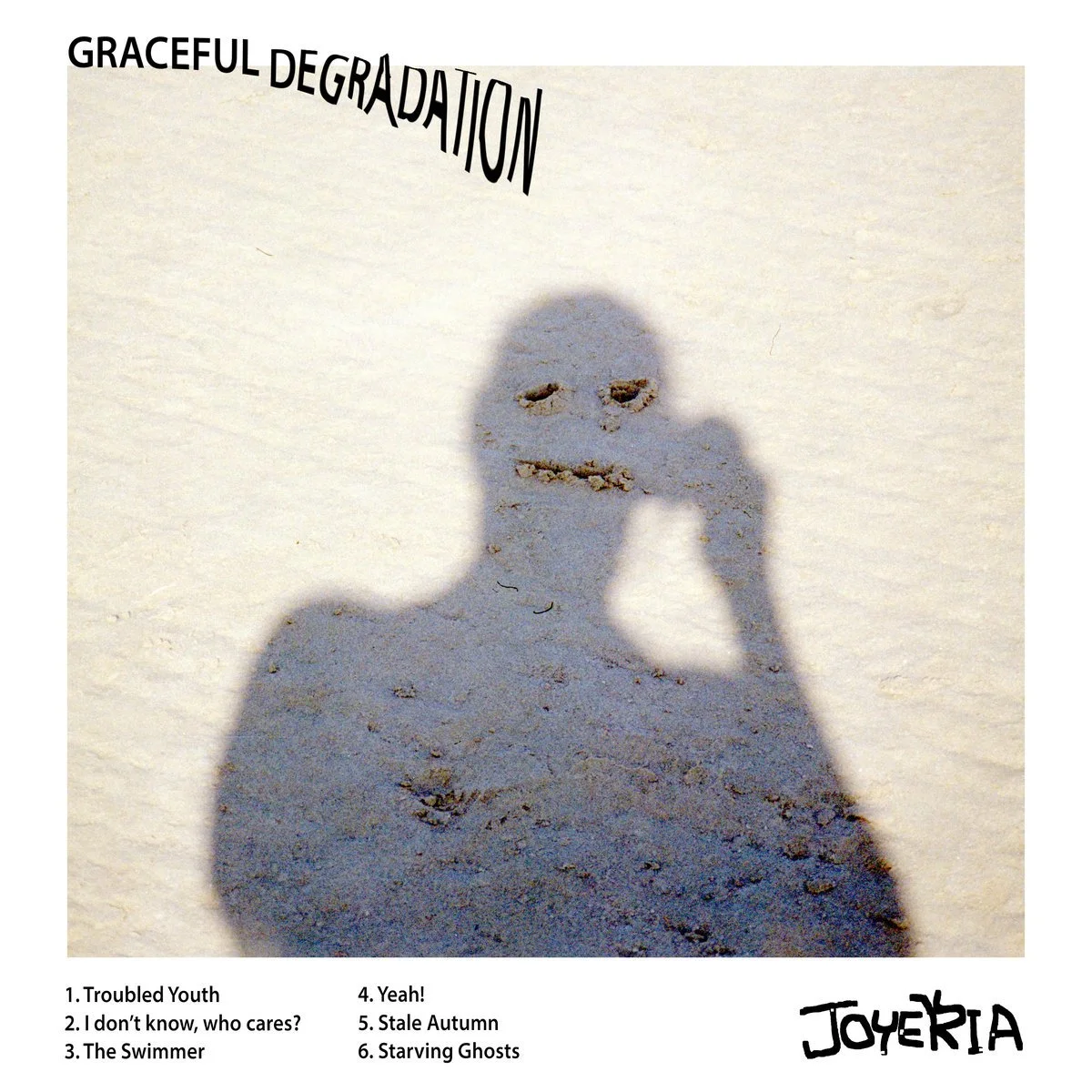by Nick Levi (@nick.g.levi)
UK-based singer-songwriter Joyeria’s new EP Graceful Degradation is a collection of six tracks as ironic and bittersweet as its title suggests. Each song not only questions life itself, but also challenges the very nature of indie rock — an unclassifiable genre defined more by ethos and message than by any consistent sonic pattern.
The first track, “Troubled Youth,” successfully sets the tone for the album. Opening with a shocking, almost disturbing burst of noise, it prepares the listener for what follows — songs that continue to surprise with every verse. The track has it all: simple yet clever and biting lyrics, delivered in Joyeria’s rather deep, poetic voice that balances traditional singing and spoken word. At times, it feels as if Nick Cave and Father John Misty collaborated on a new-wave song.
Joyeria adds a touch of seriousness with almost thrilling background vocals — asynchronous and often deliberately off-key. Both the lyrics and music skillfully navigate the space between resigned melancholy and disillusionment. In the end, the song, despite its title, remains impartial, neither sympathizing with nor judging troubled youth.
The title of the next track, “I Don’t Know, Who Cares,” is fairly self-explanatory. In a world where anyone can become a star through their cellphone and TikTok account, the song feels like an anthem of nihilism, posing an important question with irony and self-deprecation: How important are we to others? With off-key vocals that often verge on spoken word, one might expect the tone to be serious. Yet perhaps we should relax and simply accept being partly invisible. Take the single’s catchphrase “stop asking” to heart and savor the electric guitar’s repetitive solo in its stark simplicity.
If the first two tracks felt more like spoken poetry accompanied by music, the lead track “The Swimmer” sets quite a different mood. With its driving rhythms and striking synths, it edges toward the new wave or electronic era. Once again, Joyeria’s deep, unmodulated voice evokes artists like Nick Cave or Nicolas Comment, both known for blending vocals and spoken word. Despite its more vivid tones, the track still carries Joyeria’s recurring theme of disappointment. It’s a confessional piece that ends abruptly and without warning, leaving the listener questioning their recent experience.
A more traditional opening greets us in the fourth track, “Yeah!” The song is structured as a dialogue between two employees, oscillating between complaint and reprimand. Soon after we’re lulled by the electric guitar, the dual spoken-word vocals emerge, followed by a chorus repeating “yeah” in a loop. The alternation between the two creates a refreshing contrast, highlighting the satirical fun and the absurdity of repetition, which is impossible not to love. By the end, both music and vocals build to a climax, and the listener melts into a perfect blend of lyrical urgency and playful critique — all wrapped in the familiar charm of a classic rock song.
The final two songs slip into darker, balladic tones. The simple lyrics of “Stale Autumn” revisit familiar themes of nothingness, reinforced by continuous repetition. “Starving Ghosts” is perhaps the darkest and most traditional of the tracks, its gravity heightened by precise, almost military percussion and a distorted guitar near the end. There’s no abrupt ending, only noise that reminds us that behind Joyeria’s satire lie serious questions and dilemmas.
Overall, Joyeria’s EP can be summed up in one word: surprising. Whether considering its sharp lyrics, satisfying sound, striking cover design, or stylistic diversity, Graceful Degradation is a singular experience. Nothing feels familiar, yet hours later, you might still find yourself humming “The Swimmer” on your way to the grocery store.

